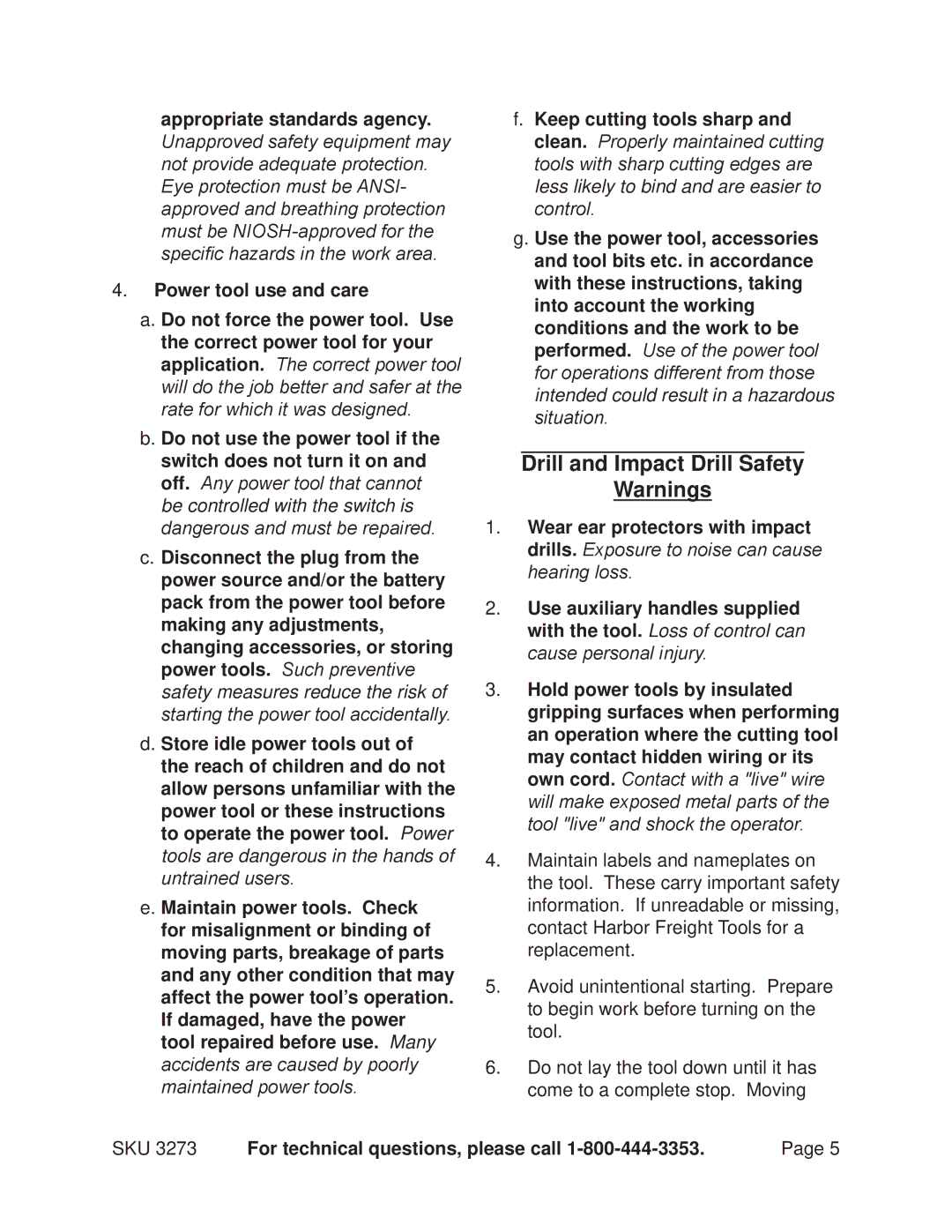appropriate standards agency. Unapproved safety equipment may not provide adequate protection. Eye protection must be ANSI- approved and breathing protection must be
4.Power tool use and care
a.Do not force the power tool. Use the correct power tool for your application. The correct power tool will do the job better and safer at the rate for which it was designed.
b.Do not use the power tool if the switch does not turn it on and off. Any power tool that cannot be controlled with the switch is dangerous and must be repaired.
c.Disconnect the plug from the power source and/or the battery pack from the power tool before making any adjustments, changing accessories, or storing power tools. Such preventive safety measures reduce the risk of starting the power tool accidentally.
d.Store idle power tools out of the reach of children and do not allow persons unfamiliar with the power tool or these instructions to operate the power tool. Power tools are dangerous in the hands of untrained users.
e.Maintain power tools. Check for misalignment or binding of moving parts, breakage of parts and any other condition that may affect the power tool’s operation. If damaged, have the power tool repaired before use. Many accidents are caused by poorly maintained power tools.
f.Keep cutting tools sharp and clean. Properly maintained cutting tools with sharp cutting edges are less likely to bind and are easier to control.
g.Use the power tool, accessories and tool bits etc. in accordance with these instructions, taking into account the working conditions and the work to be performed. Use of the power tool for operations different from those intended could result in a hazardous situation.
Drill and Impact Drill Safety
Warnings
1.Wear ear protectors with impact drills. Exposure to noise can cause hearing loss.
2.Use auxiliary handles supplied with the tool. Loss of control can cause personal injury.
3.Hold power tools by insulated gripping surfaces when performing an operation where the cutting tool may contact hidden wiring or its own cord. Contact with a ″live″ wire will make exposed metal parts of the tool ″live″ and shock the operator.
4.Maintain labels and nameplates on the tool. These carry important safety information. If unreadable or missing, contact Harbor Freight Tools for a replacement.
5.Avoid unintentional starting. Prepare to begin work before turning on the tool.
6.Do not lay the tool down until it has come to a complete stop. Moving
SKU 3273 | For technical questions, please call | Page 5 |
